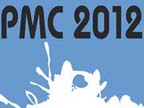This week’s Newsweek explores the psychology of giving. According to author Peter Singer, people are more apt to give when they feel they can help one person, rather than many.
It also highlights an important point for PMCers as you fundraise: make your ask personal, show the impact that giving to the PMC can have on one person, and people will be more willing to give.
From Newsweek
It may seem odd to talk about giving more now, when we all feel so tapped out and worried. But that’s not a very good excuse. No matter how hard hit we are by the economic slowdown, we are still vastly better off than those who are so poor that they struggle to meet their basic needs. Yet, though it would take comparatively little effort on our part, few of us choose to help them. Why is that?
People are more willing to help a single individual than many. In an experiment, one group was given general information about the need for donations, including statements like “Food shortages in Malawi are affecting more than 3 million children.” A second group was shown the photo of a 7-year-old Malian girl named Rokia, and told that she is desperately poor, and that “her life will be changed for the better by your gift.” People in the second group gave more.
Another good reason to give? It makes you feel happy.
There is now abundant evidence supporting what philosophers and teachers have told us since ancient times: the good person is also—typically—a happy person. A survey of 30,000 American households found that those who gave to charity were 43 percent more likely to say they were “very happy” about their lives than those who did not give. The survey doesn’t show whether giving made people happy, or happy people were more likely to give, but the anecdotal evidence is strong that many people find that when they begin to give, they free themselves from the acquisitive treadmill and find new meaning and fulfillment in their lives.

